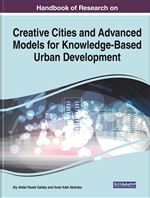
When figures as divergent as conservative British Prime Minister, Margaret Thatcher, and left leaning political philosopher, Ernesto Laclau, declare society is an “impossible object” we might ask – why investigate the relationship between society and space? The topic appears so vast that when properly charted – like Borges' famous map drawn at a 1:1 scale – so much ground is covered as to become practically and analytically useless. Society–space is understood as stabilizing from the composite lattice of practices that are coded and channeled into a kind of social machine. In the fourth, a Deleuzian approach, society–space is an ‘immanent field’ in which subjects continuously transform themselves, hybridizing, engaging in acts of conjunction, connection, or collaboration with their milieu. In the third, a post-structuralist/feminist approach, society–space is seen as a ‘performative field’ in which subjects negotiate doubled positions and paradoxical spaces – affording insights into larger societal constructs such as the gendering of public/private spheres racialized people's passing in a white world or transsexuals performance of sexuality. Space forms part of the technology of governance that constitutes subjects either as normal/abnormal, legal/illegal, or through states of exception – such as the enemy noncombatant or the illegal alien. The second, a post-structuralist/Foucauldian approach, sees society–space as a ‘strategic field’. Geographers' work on the sociospatial dialectic, spatial fix, and time–space compression have leavened understandings of the spatial dynamics in this approach. In the first, a Marxist view of inequity, society–space is a ‘structured coherence’ – a sociospatial formation, whose territorial boundaries approximate politicojuridical boundaries. This article treats four broad frameworks engaged by geographers, each providing distinct conceptual insights about society and space.

Our conception of society–space determines the vantage point from which we critique and transform the social world the subjects and processes we deem significant and their relation to a social whole.


 0 kommentar(er)
0 kommentar(er)
